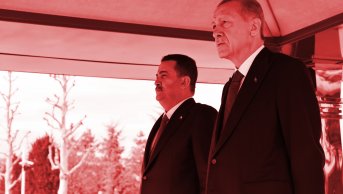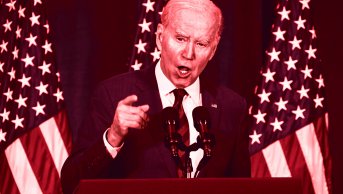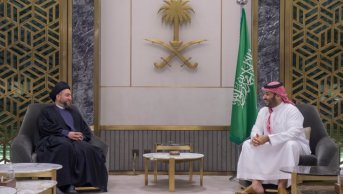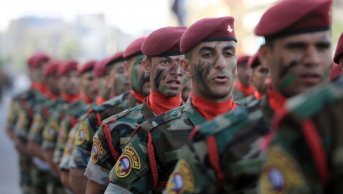Implications of the Russian-Ukrainian War on the Middle East: Challenges and Opportunities
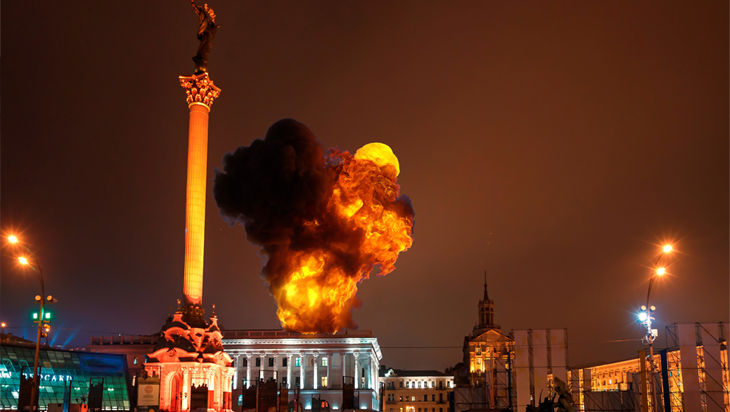
Whatever the military and political consequences of the Russian military invasion of Ukrainian territory on February 24 are, and even if the assault stops, this war has triggered a clear global confrontation between the West and Russia. Besides, there are countries outside the Western system that have announced sending military aid to Ukraine, such as Japan, South Korea , Taiwan, and Singapore.
The atmosphere of tension, division, and mutual hostility between the parties to this conflict exceeded the atmosphere of the Cold War. The economic sanctions imposed by the West and its international allies on Russia during the first two weeks of its invasion of Ukraine were harsher than all the sanctions imposed on the former Soviet Union during the Cold War era. According to the Russian media, Russia has become the number one target in terms of the number of international sanctions imposed, which exceeded 6000 after the wave of sanctions imposed on Russia following its military invasion of Ukraine/ These were in addition to the sanctions previously imposed on it due to its annexation of the Crimea in 2014. The Russian Foreign Ministry issued a statement on March 8, calling on Washington to return to coexistence in peace as in the period of the Cold War, as if returning to the atmosphere of the Cold War had become a hope for achieving world peace.
Since the beginning of the Russian-Ukrainian war, there have been intense discussions on the repercussions of this war about the Middle East’s geopolitical, humanitarian, economic and security dimensions . While the global confrontation will present the Middle East region with great challenges, there will also be looming opportunities that this confrontation will present to the actors in the region, if they can make good use of them.
Human Security Challenges
The concept of human security depends on several pillars: economic security, food security, health security, human security, societal security, and political security. Food security in the Middle East emerged as one of the challenges raised by the Russian-Ukrainian war early on, as Russia is the largest exporter of wheat, and Ukraine is ranked fifth in the world. Both countries together are responsible for 25% of the total wheat exports in the world, and more than 50% of their wheat exports are shipped to Middle Eastern countries. The two countries use their ports on the Black Sea for their wheat exports to the Middle East, which has now become a war zone. On the other hand, the Middle East is one of the biggest consumers and importers of wheat. Besides, the region has been suffering from drought in recent years, affecting wheat crops, especially in the Arab countries in North Africa, which have witnessed the worst drought in 30 years.
A report by the US Department of Agriculture stated that 9 Arab countries import about 22% of global wheat imports, namely Egypt, Algeria, Morocco, Iraq, Yemen, Saudi Arabia, Sudan, the United Arab Emirates, and Tunisia. Most of these countries rely heavily on wheat imports from Russia and Ukraine. Egypt is the biggest importer of wheat in the world. 50% of its wheat imports come from Russia and 30% from Ukraine. Most of the Arab countries confirmed that their current stocks of wheat are sufficient for 2-3 months only.
Some Middle Eastern countries are able to overcome this challenge, thanks to the strength of their economies and an abundance of funds. However, there are countries in the region whose economies are exhausted and wheat imports from Russia and Ukraine are interrupted or hampered. Wheat prices have risen 37% since the outbreak of the Russian war, threatening not only food security in these countries but also national security and political stability due to the possibility of the outbreak of massive popular protests, or what is known as “bread uprisings” or “intifadas of the hungry.”
Besides, it’s not only wheat. Russia and Ukraine are among the world's largest exporters of "sunflower" oil, which is commonly used in Arab kitchens. In addition, the rise in the cost of transport as a result of the higher fuel prices we have witnessed since the outbreak of this war will inevitably increase the prices of all foodstuffs.
This crisis revealed that the Middle East region is not only weak against traditional security challenges, but it is also weak in the face of food security challenges.
Another challenge created by the Russian-Ukrainian war within the framework of human security in the Middle East is the crises of refuge, migration and displacement. Because of the endless conflicts in the region, there are millions of people in the Middle East who are facing these crises. They need relief efforts and assistance by international humanitarian organizations. The United Nations High Commissioner for the Displaced Persons indicated on March 10th that the number of displaced persons from Ukraine to all of Europe due to the outbreak of the recent war amounted to more than 2,700,000 people, and they expect the number to reach 4 million soon. There is a fear that international humanitarian organizations will focus their efforts on the conflict in Ukraine and neglect the needs of the displaced people in the Middle East. It should be noted that these organizations were already suffering from a lack of funding even before the outbreak of the war in Ukraine. This challenge will clearly show its effects in Yemen, Syria, Palestine, and perhaps even in Iraq.
Geopolitical Challenges
The Russo-Ukrainian war turned the Black Sea basin into a burning zone. The Black Sea is a semi-closed sea, and its only gateway to the global maritime transportation network in the Mediterranean is through the Bosphorus Strait and the Sea of Marmara. According to the historical experiences of global conflicts, it is very likely that the current conflict in the Black Sea could move to the Mediterranean region and even to the Red Sea, taking into account the Russian military presence in Syria and on its coasts. Russia has significant influence and security activities in the Horn of Africa. Eritrea was one of five countries from all over the world (in addition to Russia, Belarus, North Korea, and Syria) that voted against the UN General Assembly resolution on March 2 demanding that Russia immediately stop using force against Ukraine.
The Middle East has always been a magnet for crises and conflicts throughout history, as well as for decades, being an open arena for all kinds of proxy wars. Perhaps the West and Russia will turn to the option of proxy wars to avoid an open world war.
The West has announced that it will take action to reduce its dependence on Russian energy imports, and it will certainly turn towards oil and gas exporting countries in the Middle East, such as the Gulf states, Iraq, Algeria, Libya, and even Egypt, which has some ability to export gas, in order to compensate for energy supplies from Russia. Russia, of course, will not easily accept that Middle Eastern countries play this role in harming the Russian economy. It will also not allow the West to let go of its dependence on Russian energy. Russia will work in all possible ways to obstruct these trends. With a global system that does not hesitate to use force to achieve its interests and with Russia's ability to influence the security scene in the Middle East, we may witness in the coming period a conflict, direct or indirect, that threatens energy security in this region.
The great global division between the West and Russia, caused by the Russian-Ukrainian war, will leave the Middle East with difficult choices to balance their international political, economic, and security relations. Russia today is not the former Soviet Union. Russia currently has good relations with most Middle Eastern countries, including advanced relations in armaments with the Arab Gulf states, which were considered the traditional allies of the West in the region.
The escalation in relations and the absence of understanding between the West and Russia will also increase the complexity of the Middle East crises in which Russia is involved, such as the Syrian and Libyan crises, and will reduce the chances of reaching just solutions to these crises, or solutions that bring solid stability to the region.
In case Russia succeeds in imposing its conditions on the world to end the war in Ukraine, this will give Russia’s allies, such as the Syrian regime, Khalifa Haftar, Iran and its proxies in the region, in the Middle East, a moral impetus. This will be in spite of recent tension between Russia and Iran due to Russian requirements to complete the agreement between Iran and the P5+1 countries on the Iranian nuclear issue. Through past experiences, these parties always turn their high morale into hostile acts in the region.
The need to increase energy supplies to compensate for the cut in energy imports from Russia may force the West to ease its pressure on Iran and allow more exportation of its oil and gas. This will benefit Iran financially, especially with the rise in global oil prices. Over the past decades, Iran has used any financial abundance it obtained in two main areas: first, to increase its penetration into the Middle East and strengthen its influence in the region by supporting armed factions linked to Iran; and second, to develop its nuclear program. If these hypotheses are realized, the Middle East region must prepare to deal with a new Iran, more powerful and influential than the previous one, and very close to possessing nuclear weapons.
According to the statements of the negotiating parties, the signing of an agreement between Iran and the P5+1 group on the Iranian nuclear file is very close to happening. If this agreement does not reassure Israeli fears, Israel may launch an air attack on Iranian nuclear facilities, taking advantage of the world's preoccupation with the war in Ukraine and the strength of its relationship with the West and Russia, on the one hand, and the decline of Russian-Iranian relations, on the other hand. Israel has a precedent in this matter. It launched an air attack on the Iraqi nuclear reactor in 1981 while the world was preoccupied with the Iran-Iraq war. It is certain that the repetition of such an Israeli step in the current circumstances will have dire consequences for the security and stability in the Middle East.
Opportunities
The West's need for energy supplies will give a greater role to the oil-producing countries in the Middle East, especially Saudi Arabia, whose position is expected to strengthen as an important player in the international and regional arena, especially with the possibility of a decline in Russian support for Iran. It is clear that there are new, balanced visions that have begun to form among the Gulf countries. Instead of quickly responding to the interests of their Western allies as they did during the years of the Cold War, they might choose to deal with the Western-Russian conflict based on their own self-interests in the first place. It seems that the Gulf states learned the lesson well. Despite everything they have offered to the West; these countries have been left alone while facing threats from Iran and its proxies in the region. During the first two weeks of the Russian-Ukrainian war, five important facts occurred in this context. The first was the UAE's refusal to vote on a UN Security Council resolution condemning the Russian invasion of Ukraine. The second is the issuance by the UN Security Council of a resolution proposed by the UAE banning the supply of arms to the Houthis (Iran’s allies in Yemen) and Russia’s vote to approve this resolution. The third is Iran’s abstention vote, like the rest of Russia’s allies, against the UN resolution on March 2 which condemned the Russian invasion of Ukraine. The fourth is Saudi Arabia’s insistence on rejecting American and European appeals to increase oil production to reduce its global prices, and the fifth is the report by the American Wall Street Journal on March 8, which claimed that the Saudi Crown Prince, Prince Muhammad bin Salman, and the Crown Prince of Abu Dhabi, Sheikh Mohammed bin Zayed They refused to receive phone calls from US President Joe Biden about the Ukraine crisis.
The Russian-Ukrainian war revealed the need for the North Atlantic Treaty Organization “NATO” to restore its unity and strengthen its solidarity. Within this endeavor, it is certain that the NATO has begun to reconsider its negative attitudes towards Turkey, which has the second largest army in NATO after the United States. In recent years, NATO has left Turkey alone to face the security challenges that the Syrian crisis has created. Of course, Turkey will not forget this position of NATO, but decision-makers in Turkey will not miss such opportunity that NATO may present to restore the Turkish role in this alliance, if this opportunity leads to an increase in Turkey's role and influence in the region and serves Turkey's interests and national security.
On the other hand, global pressures, security and economic challenges faced by Russia as a result of its invasion of Ukraine and Turkey's positive and balanced positions towards all parties in the Ukrainian crisis may compel Russia to ease its pressure on Turkey in the Syrian file and move towards more flexible position to find solutions to these issues. The crisis will serve Turkey's interests and security, and will increase the effectiveness and impact of Turkey's regional role.
The global sanctions imposed on Russia in the banking sector will hamper imports of Russian weapons to the armies of the Middle East region, which are largely dependent on Russian weapons. This may be an opportunity for Turkey to increase its cooperation with the countries of the region in the arms industry , especially since Turkey has made advanced strides in this field.

